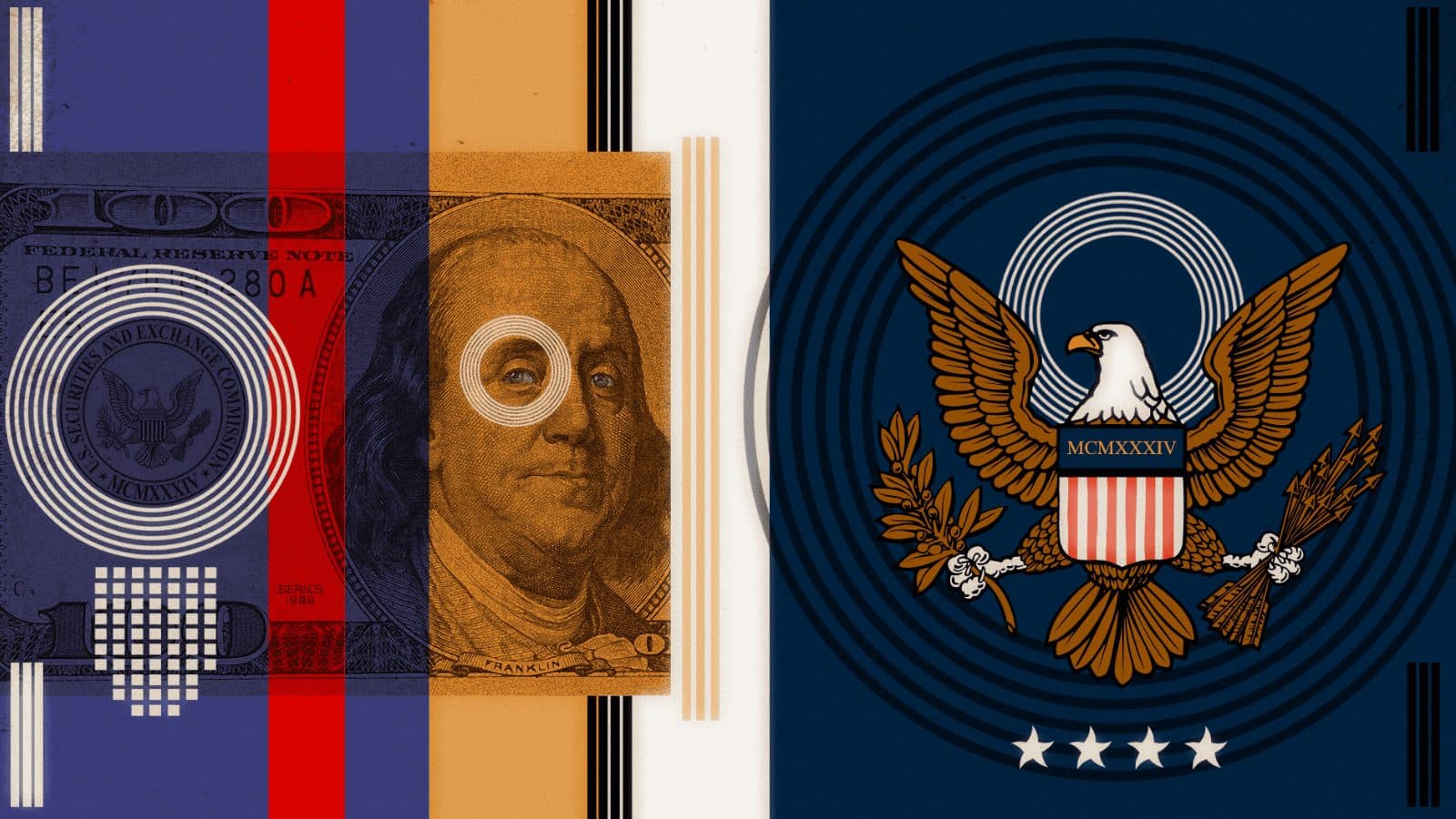SEC Amendment Proposal Is Unconstitutional, Advocacy Group Says
A new SEC amendment might unfairly subject blockchain developers and publishers to exchange registration requirements, Coin Center said

Blockworks exclusive art by axel rangel
- The rule seeks to change the definition of “exchange” to include entities that connect buyers and sellers
- The rule violates the First Amendment, according to Supreme Court precedent, Coin Center said
A new rule proposed by the SEC to expand its definition of “exchange” will unfairly subject developers and publishers to registration requirements and violates the US Constitution, nonprofit research group Coin Center said Thursday.
The SEC revealed a proposed rule in March that would classify as exchanges entities that bring “buyers and sellers” together and “make available” communications protocols. The regulatory body has previously defined exchanges as entities that bring together “orders” and “use methods” to operate trades.
“This rulemaking aims in part to expand the definition of ‘exchange’ in order to encompass additional financial services organizations,” Coin Center’s comment letter read.
“The way it does so, however, would create an inappropriately broad standard for registration that would impose an unconstitutional prior restraint on the protected speech activities of countless software developers and technologists.”
By expanding the definition of “exchange,” more groups and individuals would be required to register as such, Coin Center pointed out. While the SEC makes no mention of cryptocurrencies or digital asset technology in the proposal, the industry would be impacted should the rule pass, Coin Center said.
“This rule change would undoubtedly impact countless developers, publishers, and republishers who share protocols (rules in computer language) online that allow persons to trade ‘tokens’ or other valuable digital assets,” the comment letter said.
In addition to the harsher registration requirements, Coin Center argues that the proposed rule violates the First Amendment by infringing on freedom of speech.
The advocacy group cites a 1985 court case, Lowe v. SEC, where the SEC attempted to ban people from publishing newsletters with stock tips. The court ruled the ban unconstitutional.
“We urge the Commission to follow the counsel of former Commissioner Karmel as well as current Commissioner Peirce, and to narrow the scope of the definition and avoid chilling the speech rights of Americans,” the letter said.
Get the news in your inbox. Explore Blockworks newsletters:
- The Breakdown: Decoding crypto and the markets. Daily.
- 0xResearch: Alpha in your inbox. Think like an analyst.






